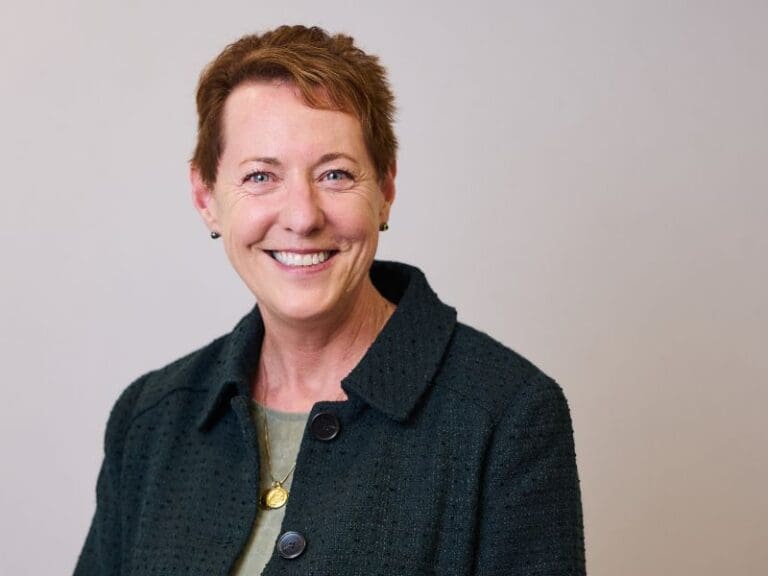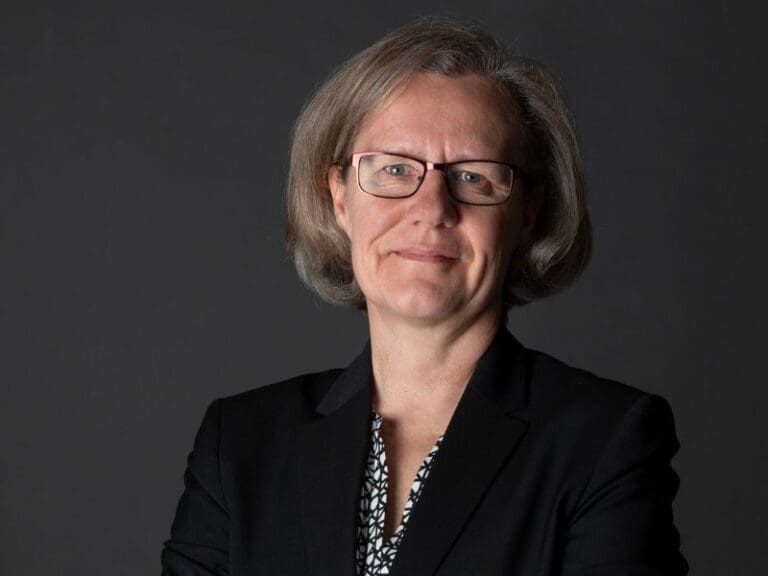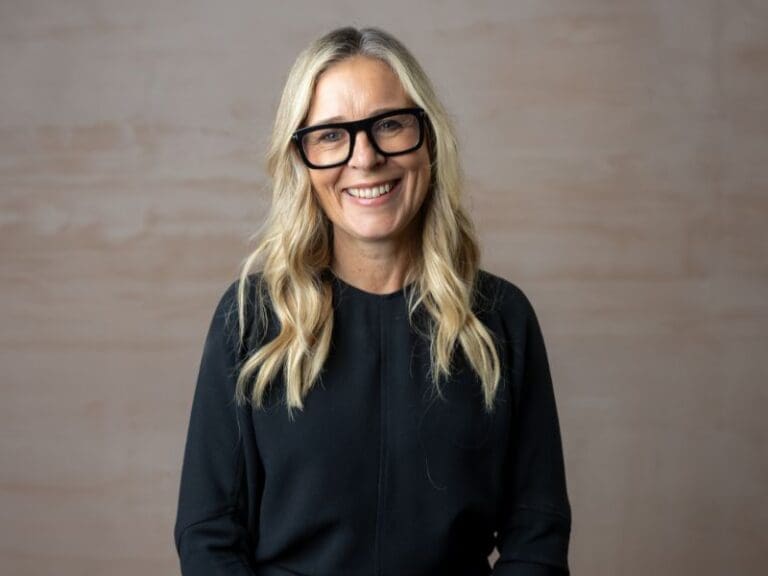Angela Taylor is Chief of Staff & Head of Strategy, having been promoted this year from Global Strategy Director.
As Chief of Staff, she leads strategy and business planning while driving alignment on execution. Angela is also managing critical projects and strategic relationships, while overseeing special initiatives which contribute directly to the company’s top and bottom line.
As LiquidStack’s Director of Global Strategy, she was responsible for shaping and executing the organization’s strategic vision and working collaboratively with cross-functional teams to identify opportunities for growth, mitigate risks, and ensure alignment with the company’s mission and values.
Prior to joining LiquidStack, Ms. Taylor served as a General Manager in Intel’s Data Centre Business Innovation (DBIO) Group. In this role, she led a team incubating liquid cooling-based Data Centre sustainability solutions and spearheaded creation of a Data Centre heat reuse calculator in collaboration with the National Renewable Energy Lab.
Ms. Taylor brings over 25 years of strategic planning, marketing, and sales expertise to her role, having held leadership positions at Intel, Deloitte, Oracle, and KPMG.
Outside of work, Ms. Taylor enjoys spending time with her family traveling, scuba diving, golfing, skiing, and volunteering with climate action groups.
How did you land your current role? Was it planned?
At Intel, I led innovation teams focused on sustainability and emerging technology. One project aimed to improve the economics of waste heat reuse in liquid-cooled data centres through software; another developed an embedded SSD roadmap tailored to the evolving needs of the Internet of Things. While both had strong potential, shifting priorities meant they were ultimately shelved.
These experiences sparked my interest in startups, where building something new and bringing innovation to market quickly becomes the focus. Through the waste heat project, I had the opportunity to work with LiquidStack, a global, full service leader in liquid cooling for data centres, and was drawn to their mission, customer focus, and culture of innovation.
When Intel divested the Data Center Innovation group I was part of, it gave me the chance to be intentional about my next step. I knew I wanted to stay in the sustainability space, and the opportunity at LiquidStack felt like a strong fit – both professionally and personally.
What are the key roles in your field of work, and why did you choose your current expertise?
Key roles in my field include product development, marketing, business development, strategic partnerships, and corporate planning. I gravitated toward this path because I enjoy shaping the big picture – connecting what we build with why we build it and who it’s for. My favorite work sits at the intersection of product strategy, market need, and cross-functional collaboration. Being responsible for the roadmap and P&L early in my career showed me how much I enjoy having that broad perspective and accountability.3. Did you (or do you) have a role model in tech or business in general?
Yes several, both male and female. They’ve been thoughtful, intelligent, and supportive leaders who have challenged me to grow. Despite holding immense responsibility, they remained approachable and fair, creating a culture of trust. It’s a rare combination, and one I try to emulate.
What are you most proud of in your career so far?
There have been exciting milestones – like launching Intel’s embedded SSD roadmap, which generated over $20 million in its first year, and more recently, helping lead LiquidStack’s pivot to coolant distribution units, setting us up for long-term growth in the liquid cooling market.
But what I’m most proud of is helping people, especially those early in their careers -find their footing in the technology industry. I’ve had the chance to mentor students and young professionals, support them in landing their first roles, and watch them grow. Seeing their confidence and careers take off has been the most meaningful and lasting part of my work.
What does an average workday look like for you?
My days are a mix of meetings and cross-functional alignment. I work closely with teams across sales, operations, engineering, and our external partners to drive strategic initiatives forward. I review deliverables, guide partner activity, and ensure execution stays aligned with company goals. No two days are the same, but the common thread is helping our organization scale and move with purpose.
Are there any specific skills or traits that companies look for when hiring in your field?
Strong communication, a learning mindset, and cross-functional collaboration are essential. You need to be able to synthesize complex inputs, navigate ambiguity, and bring people along with you. Business acumen and the ability to think strategically while also understanding operational realities is also key. Adaptability and effective prioritization are highly valued.
Has anyone ever tried to stop you from learning and developing in your professional life, or have you found the tech sector supportive?
I haven’t experienced anyone outright trying to stop me from learning, but I also wouldn’t say that learning opportunities were offered proactively. I’ve often had to take ownership of my own development. When I started working in liquid cooling, for example, I had very little experience in the field. I immersed myself in it, reading technical materials, attending industry conferences, reaching out to thermal engineers I knew, and asking a lot of questions.
Being self-directed in your learning is essential, especially in tech. Don’t be afraid to ask questions, even ones that feel basic. People won’t know what you don’t know unless you speak up, and curiosity is one of the most powerful tools for growth.
Have you ever faced insecurities and anxieties during your career, and how did you overcome them?
Yes, particularly after leaving Intel. It was a difficult moment, and I had to work through a lot of self-doubt. When something like that happens, it’s hard not to take it personally, even though it rarely is. Over time, I gained perspective and rebuilt my confidence by staying engaged and leaning into the work I love.
I’ve also had to navigate being the only woman in the room, which comes with its own challenges. Men and women often communicate differently, and I’ve had to learn how to adjust my style without losing my authenticity. The key is to keep showing up, stay grounded in your value, and surround yourself with people who challenge and support you.
Entering the world of work can be daunting. Do you have any words of advice for anyone feeling overwhelmed?
The best thing you can do early on is focus on learning: ask thoughtful questions, take notes, and don’t be afraid to ask for help more than once. Most people are happy to explain things, especially when they see genuine curiosity and effort.
Just as important, start building relationships early. Your work will speak for itself, but your network and communication skills often open the next opportunity. Relationships built on trust and respect can have a lasting impact on your career.
And finally, it’s completely normal to feel overwhelmed -most people do, even if they don’t show it. Growth often happens when you’re uncertain but willing to lean in and figure things out. You don’t need to have all the answers; you just need to stay open, engaged, and willing to stretch.
What advice would you give other women wanting to reach their career goals in technology?
Be mindful of what responsibilities you take on. Women are often quick to help, which can sometimes lead to being typecast in certain roles. Help when it matters -but be strategic about where you invest your time.
More importantly, be vocal about your aspirations. Don’t wait for someone to ask, share your career goals with your manager and ask what steps you can take now to get there. Be intentional, and advocate for yourself consistently.








